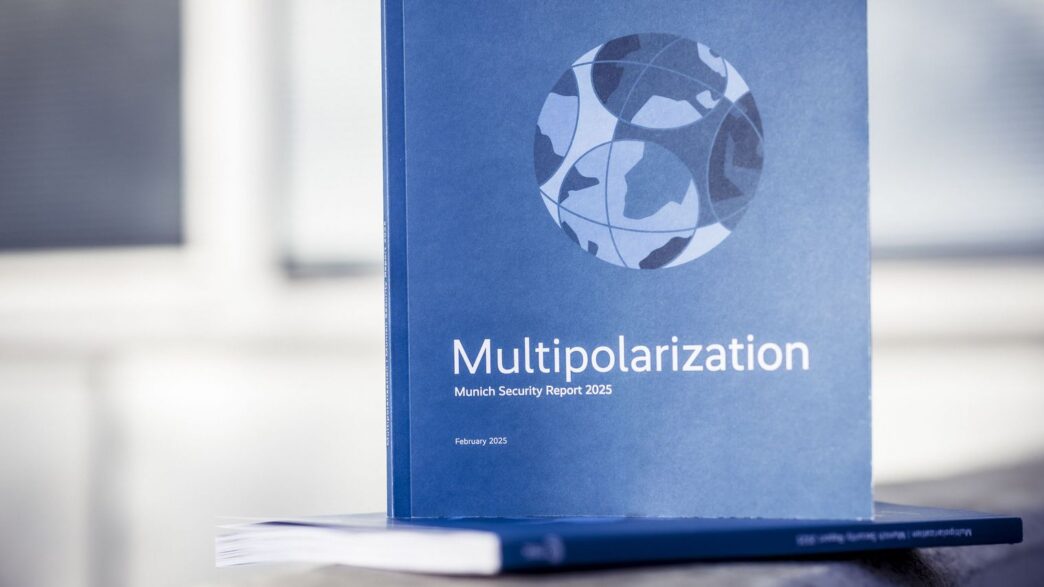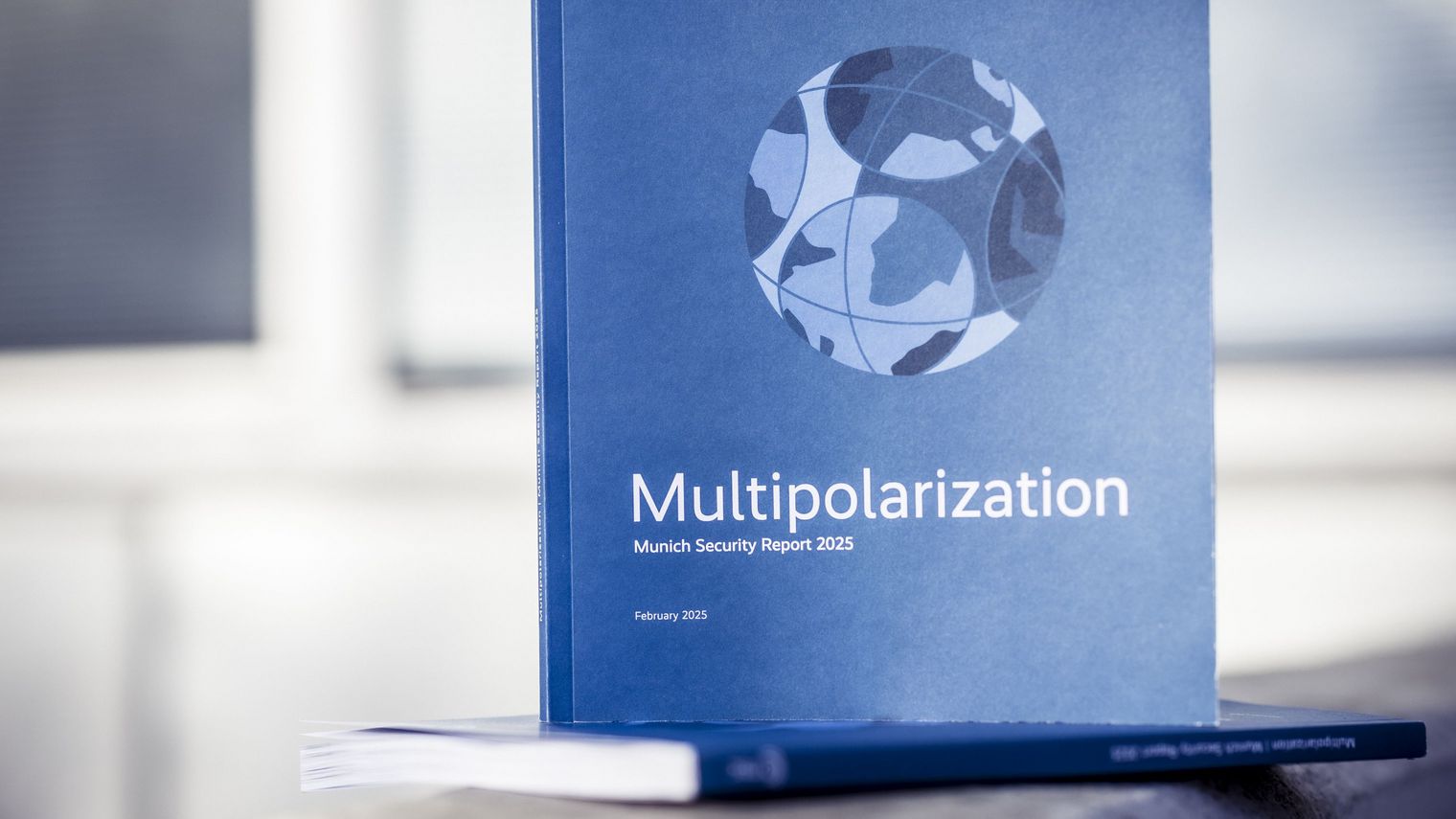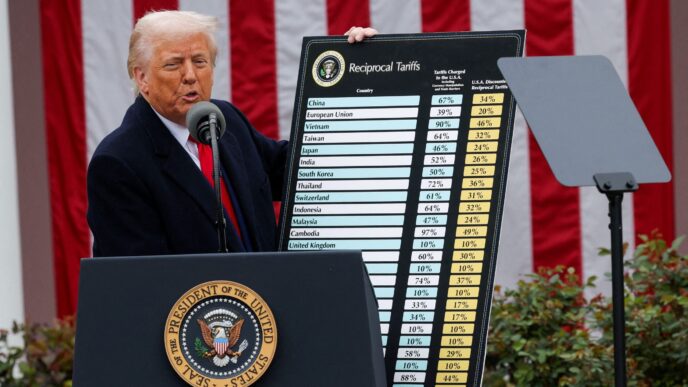With the publication of the Munich Security Report 2025, it is argued that the era of a unipolar world – dominated for decades by a single leading power – is giving way to a more fluid and diverse geopolitical landscape. This phenomenon, often referred to as multipolarisation, reflects the rise of multiple influential actors – such as emerging economies, regional alliances, and non-state entities – that are reshaping international relations.
From heightened tensions between major powers to the rapid reconfiguration of trading blocs, multipolarisation presents both risks and opportunities for businesses. Firms accustomed to relatively stable global norms now find themselves navigating everything from divergent regulatory regimes to unpredictable tariff impositions. Understanding why and how the world is transitioning to a multipolar order is no longer an academic exercise – it is a strategic imperative for leadership teams aiming to safeguard their operations and capitalise on new market prospects.
This opening article sets the stage for a deeper exploration of the implications of multipolarisation, drawing on the Munich Security Report 2025 as a key reference point. We will highlight how the diffusion of power shapes operational uncertainties and investment decisions, laying the groundwork for subsequent articles that delve into risk mitigation, growth opportunities, and the strategic adjustments companies must make to thrive in a rapidly changing global context.
Overview
The Munich Security Report 2025 provides a sobering assessment of the shifting global order, highlighting multipolarisation as a defining challenge of our time. The report, published ahead of the annual Munich Security Conference, examines the fragmentation of international power structures, where influence is no longer concentrated in a single dominant actor but is instead dispersed among multiple states, regional alliances, and non-state players.
For much of the post-Cold War era, global affairs were largely shaped by a unipolar system, with the United States acting as the principal architect of international rules and institutions. However, the latest findings suggest that this model is eroding, giving way to a world where emerging powers such as China, India, and Brazil are asserting their influence. Alongside this geopolitical realignment, the report highlights a growing ideological divide, where democratic and authoritarian governance models compete for legitimacy, further complicating international cooperation.
Multipolarisation refers to the redistribution of power across multiple influential actors, as opposed to a single superpower or two dominant blocs. While some view this shift as a potential driver of a more balanced and inclusive global order, the Munich Security Report 2025 warns that it may instead lead to greater instability, increased competition, and reduced consensus on global governance.
Several key trends underpin this transformation:
- The Rise of Emerging Powers: Countries such as China, India, and members of the BRICS alliance are reshaping global trade and diplomacy, often creating alternative economic and financial systems outside traditional Western-led frameworks. Their increasing assertiveness challenges the influence of established institutions such as the IMF, World Bank, and G7.
- Geopolitical Fragmentation and Shifting Alliances: The decline of clear-cut global leadership has led to the proliferation of regional power centres. Countries that were once aligned with larger blocs are now hedging their bets, seeking diplomatic and economic partnerships across multiple spheres of influence.
- Ideological Competition and Regulatory Divergence: The report highlights that multipolarisation is not purely an economic or political phenomenon – it is also a battle of governance models. Democratic and authoritarian states are pursuing conflicting regulatory, technological, and economic frameworks, creating fragmented supply chains, diverging digital ecosystems, and new security risks for businesses operating across multiple jurisdictions.
As the global landscape becomes more complex, companies must be prepared to navigate an environment where policy uncertainty, trade realignments, and regulatory divergence become the norm.
Key Takeaways
The report makes it clear that multipolarisation is not just a geopolitical phenomenon – it has direct and far-reaching consequences for businesses operating across international markets. From heightened uncertainty in trade policies to increased exposure to regulatory divergence, companies must prepare for a world where power dynamics are fluid, alliances are shifting, and market conditions can change rapidly.
Below are the key takeaways for business leaders seeking to navigate this evolving landscape.
Operational and Strategic Uncertainty
One of the most immediate challenges posed by multipolarisation is the growing unpredictability in trade relationships, supply chains, and investment climates. As power becomes more fragmented, so too does the stability of established market norms, leading to a business environment where:
- Economic policies and trade agreements are subject to sudden shifts: Bilateral and regional trade deals are becoming more common, but they are also more fragile. Political tensions can lead to abrupt changes in tariffs, export restrictions, or even embargoes, disrupting long-term planning.
- Market access can no longer be taken for granted: Companies operating internationally may find themselves caught in the crossfire of diplomatic disputes, where access to key markets can be restricted or subjected to new conditions overnight.
- Supply chains are increasingly vulnerable: Multipolarisation has led to a decoupling of critical supply networks, particularly in high-tech sectors such as semiconductors, AI, and defence technologies. Businesses must adapt to the reality that reliance on a single region for essential materials or components carries significant risks.
To remain resilient, companies must embrace flexibility and diversification in their operations, ensuring that contingency plans are in place for disruptions arising from geopolitical tensions.
Tracking Great-Power Competition, Sanctions, and Evolving Trade Policies
The report emphasises that multipolarisation is exacerbating geopolitical rivalries, particularly between the United States, China, and the European Union. These tensions manifest in:
- The expansion of economic sanctions and trade restrictions: Governments are increasingly using economic tools as weapons, with sanctions becoming a key instrument of foreign policy. Businesses need to remain vigilant about how new restrictions might affect their supply chains, financial transactions, or partnerships.
- Heightened regulatory divergence: As major economies pursue competing industrial policies, companies face growing complexity in regulatory compliance. Whether it’s data protection laws, environmental standards, or taxation policies, firms must ensure they can operate across different jurisdictions without falling foul of shifting legal frameworks.
- The emergence of parallel economic systems: China and other emerging powers are actively developing alternative payment systems, trade corridors, and financial institutions to reduce dependency on Western-led structures such as SWIFT or the US dollar. Businesses with international exposure must be aware of how these developments could affect their ability to transact and move capital across borders.
Given these dynamics, corporate decision-makers must adopt a proactive approach to geopolitical risk monitoring, integrating political analysis into their strategic planning processes to anticipate and mitigate potential disruptions.
The Growing Importance of Political Risk Management
With traditional business forecasting tools struggling to keep pace with the complexity of global shifts, the report underscores the increasing value of political risk analysis. Companies must:
- Develop in-house or third-party expertise on geopolitical trends to better anticipate risks before they materialise.
- Adopt scenario planning techniques to assess potential outcomes of major geopolitical developments and their impact on business operations.
- Strengthen regulatory compliance teams to ensure that businesses remain adaptable to evolving legal and policy landscapes across multiple jurisdictions.
The challenges highlighted in the report are not insurmountable, but they require businesses to rethink traditional approaches to risk, investment, and global strategy. Multipolarisation introduces a new level of complexity, where past assumptions about stability, free trade, and market access can no longer be relied upon.
Implications for Corporate Strategy
As multipolarisation reshapes the global landscape, businesses must adjust their strategies to navigate new risks and capitalise on emerging opportunities. The report underscores the need for companies to move beyond traditional market assumptions and embrace geopolitical foresight, flexibility, and resilience in their decision-making. The ability to adapt to shifting power structures will be crucial for maintaining stability and growth in an increasingly unpredictable world.
Planning for Expansions, Investments, and Partnerships
In a multipolar world, businesses can no longer assume that international markets will remain open, regulations will remain consistent, or supply chains will function without disruption. Corporate strategies must now factor in geopolitical dynamics as a core element of decision-making.
- Market Entry and Expansion Considerations: Businesses must assess not only economic conditions but also political alignment, regional security, and trade relationships before expanding into new markets. Diversification across multiple regions can reduce exposure to sudden geopolitical shifts, such as sanctions, economic decoupling, or trade disputes.
- Investment and Supply Chain Resilience: Companies should avoid over-reliance on any single country or region for key materials or components. The China-plus-one strategy, where firms maintain production hubs in China but also establish alternative manufacturing bases (e.g., in Southeast Asia or Latin America), is a growing trend. Nearshoring and friendshoring (relocating supply chains to politically aligned or geographically closer countries) are becoming essential strategies for reducing exposure to geopolitical risk.
- Strategic Alliances and Partnerships: In a world where power is more dispersed, forging relationships with regional players, local governments, and non-state actors can be as important as dealing with global superpowers. Businesses should prioritise partnerships that offer operational flexibility and allow for swift adaptations to changing regulatory and political environments.
Adapting to a Fragmented Regulatory Environment
Multipolarisation is leading to a divergence in regulatory frameworks, with different regions adopting competing standards in areas such as technology, data privacy, and ESG (Environmental, Social, and Governance) compliance.
- Regulatory Complexity: Companies operating across multiple jurisdictions must now comply with contradictory or politically motivated regulations – for example, Western sanctions on Chinese tech firms versus China’s push for domestic alternatives to Western software and semiconductors. The risk of regulatory fragmentation means businesses must build compliance teams capable of navigating multiple legal landscapes rather than relying on a one-size-fits-all approach.
- ESG and Political Scrutiny: ESG policies are becoming politically contentious, with some jurisdictions tightening sustainability regulations while others, such as certain US states, are rolling back ESG mandates in opposition to perceived “corporate activism.” Companies must remain agile, ensuring localised ESG strategies that align with regional expectations while maintaining corporate integrity.
The Role of Corporate Diplomacy and Stakeholder Engagement
In an era of geopolitical tension, businesses must develop corporate diplomacy capabilities to navigate relationships with multiple governments, regulators, and international institutions.
- Engaging with Policymakers: Businesses should actively participate in policy discussions to ensure their interests are represented in trade negotiations, regulatory frameworks, and economic agreements. This includes collaborating with trade associations, industry groups, and diplomatic networks to shape favourable business environments.
- Understanding National Security Agendas: Governments are increasingly viewing industries like technology, finance, and energy as strategic assets, meaning businesses in these sectors must be prepared for heightened scrutiny, restrictions, and compliance requirements. Companies should develop clear risk management strategies for operating in sectors deemed critical to national security to avoid being caught in political crossfire.
Building Resilience Through Scenario Planning
The unpredictability of multipolarisation requires companies to adopt a more sophisticated approach to risk management.
- Scenario Planning for Geopolitical Risks: Businesses should model different potential geopolitical developments – such as increased trade barriers, shifts in global alliances, or economic decoupling – and prepare contingency plans for each scenario. This could include stress-testing supply chains, evaluating alternative suppliers, and maintaining strategic reserves of essential materials.
- Developing an Adaptive Corporate Culture: Corporate decision-making should prioritise flexibility and rapid response mechanisms, allowing businesses to adjust operations swiftly in response to regulatory or political shifts. Investment in real-time geopolitical intelligence and risk monitoring will be crucial for anticipating changes before they disrupt operations.
Looking Ahead: The Next Steps for Businesses
Multipolarisation is not a temporary phase but a long-term structural shift in global power dynamics. Businesses that succeed in this new landscape will be those that:
- Integrate geopolitical analysis into corporate strategy, rather than treating it as an afterthought.
- Adopt flexible, diversified supply chains that reduce exposure to regional instability.
- Engage proactively with policymakers and stakeholders to influence regulatory environments.
- Develop risk-mitigation frameworks that account for geopolitical uncertainties.
Conclusion
The Munich Security Report 2025 makes it abundantly clear that multipolarisation is reshaping the global business environment, creating both new risks and emerging opportunities. The decline of a unipolar world, where economic and political stability was largely underpinned by a single dominant power, has given way to a more fragmented, unpredictable order. For businesses, this means that traditional assumptions about market access, supply chain resilience, regulatory stability, and geopolitical alliances can no longer be relied upon.
To thrive in this evolving landscape, corporate leaders must adapt their strategies to a world where power is more dispersed, regulations are increasingly divergent, and geopolitical competition influences business decisions in unprecedented ways.
Some of the key takeaways from the report include:
- Embracing Geopolitical Awareness: Companies can no longer afford to treat political risk as a secondary concern. Understanding the shifting balance of power and its impact on trade, supply chains, and investment decisions is now a core component of corporate strategy.
- Building Resilience Through Diversification: Over-reliance on single markets, suppliers, or financial systems is becoming increasingly risky. Firms that spread their operations across multiple regions and establish adaptable business models will be better positioned to navigate uncertainty.
- Engaging with Policymakers and Stakeholders: Business leaders must become active participants in shaping regulatory and economic environments, ensuring that their interests are represented in trade negotiations, policy discussions, and global governance reforms.
- Developing Long-Term Scenario Planning: In an era of heightened unpredictability, successful companies will be those that anticipate geopolitical shifts, prepare for multiple possible outcomes, and implement proactive rather than reactive strategies.
Multipolarisation is not merely a trend – it is a structural transformation of the global order that will continue to shape economic and political landscapes for years to come.
Business leaders must ask themselves:
- Are we adequately assessing geopolitical risks in our supply chains, investment plans, and market strategies?
- Do we have a resilient, flexible operating model that allows us to quickly adjust to sudden policy or trade shifts?
- Are we actively engaging with governments, industry bodies, and international institutions to shape the rules and regulations that will govern the new multipolar era?
- Have we embedded scenario planning and crisis preparedness into our corporate decision-making processes?
Failure to answer these questions could leave businesses vulnerable to economic shocks, regulatory challenges, and competitive disadvantages in the years ahead. Conversely, those that take a proactive, forward-thinking approach will not only mitigate risks but also position themselves as leaders in an increasingly multipolar world.





